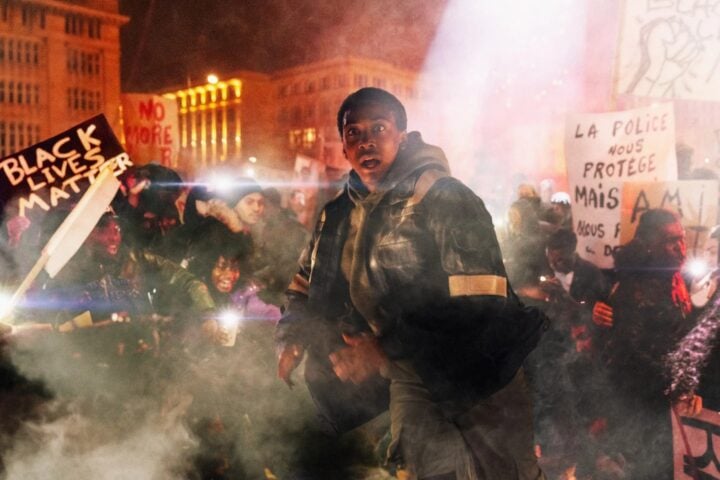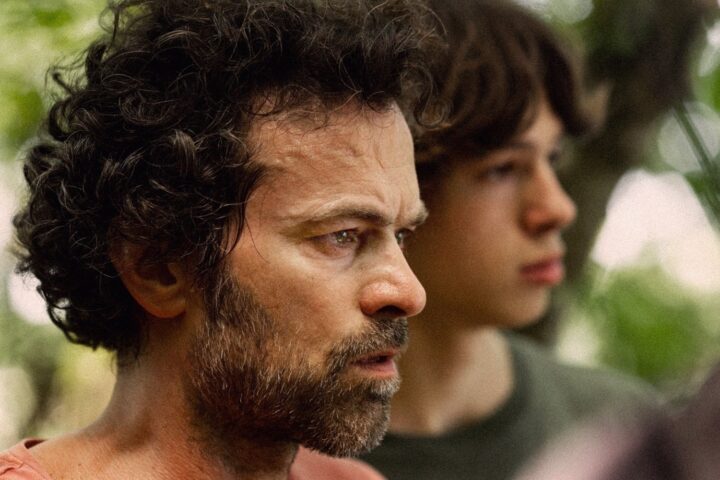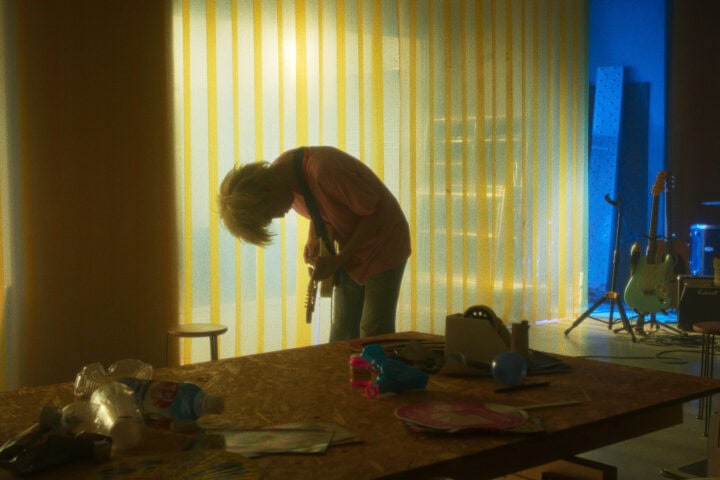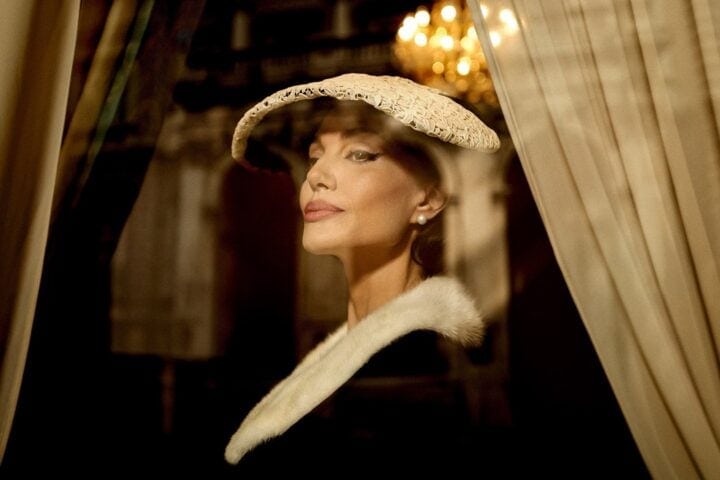In a scene near the end of Quentin Dupieux’s Daaaaaalí!, Judith (Anaïs Demoustier), a French journalist assigned to interview Salvador Dalí, is riding the bus, in the doldrums after the latest failure to capture her mercurial subject on film. The facial hair of the man seated across from her reminds her of Dalí’s iconic mustache, and after Judith aks him if it’s an intentional homage, he retreats behind his newspaper. The front-page headline reads, “Barista Lets Off Steam on Paris Bus”—a reference to the insult that Judith’s producer (Romain Duris) calls her—with a photograph of Judith below. Dupieux then cuts to a reverse shot of her that begins as a perfect match of the photo, one of countless flourishes of dream logic in the film that subvert conventional cinematic handling of time and space.
That there are almost as many actors portraying Dalí (Edouard Baer, Jonathan Cohen, Gilles Lellouche, Pio Marmaï, Didier Flamand) as there are a’s in the film’s title should give some sense of what Dupieux is up to here: At any given moment, the artist’s age is seemingly random. In an early scene, he strides down a hotel corridor denouncing the banality of the architecture in ludicrously exaggerated French, as his forward progress continually resets. The effect recalls a bit from Monty Python’s Holy Grail where Lancelot single-handedly attacks a castle across a marsh and we get the same shot of him sprinting toward the camera over and over.
If the plot that results is a rebus of films within films and dreams within dreams, Dupieux’s loopy deadpan style helps to offset the delirium. Throughout, Dalí is portrayed as a pontificating buffoon whose wealth and reputation allow his narcissism to reach borderline sociopathic heights. He will only stoop to be interviewed on film, and only before a camera of “gigantesque” proportions. He all but demands to direct Judith’s film. For Dupieux, Avida Dollars, Breton’s anagrammatical nickname for Dalí, was certainly apt. (As anyone familiar with the trivia of Alejandro Jodorowsky’s aborted feature adaptation of Dune will know, Dalí would only agree to play the emperor at an unprecedented rate of $100,000 per hour.)
Even so, Dupieux’s soft spot for the idiosyncrasy of his subject’s vision, however kitschified and self-parodic, shines through. Ironically, there’s much more intricacy to the director’s treatment of time than in Dalí’s The Persistence of Memory, synonymous with relativity in the popular imagination. As Dupieux has Dalí say in this film, his paintings are “mediocre.”
Daaaaaalí is a strange case of the homage that outstrips what it’s meant to be imitating. No hagiography, the film has more nested narratives than a Matryoshka doll, yet no doll is smaller than any other. As such, Daaaaaalí’s structure is a nod less to Dalí and Luis Buñuel’s Un Chien Andalou than to Maya Deren’s Meshes of the Afternoon. Dupieux melts the frames that separate dream, film, and reality until they become one plate of tangled spaghetti. Even the line between interviewer and interviewee collapses, so that the character of Judith, who self-describes as “boring,” ends up more developed than the self-mythologizing Dalí. Without ever sacrificing its sense of humor, Daaaaaalí achieves the endlessly unfolding self-similarity of a fractal.
Since 2001, we've brought you uncompromising, candid takes on the world of film, music, television, video games, theater, and more. Independently owned and operated publications like Slant have been hit hard in recent years, but we’re committed to keeping our content free and accessible—meaning no paywalls or fees.
If you like what we do, please consider subscribing to our Patreon or making a donation.





